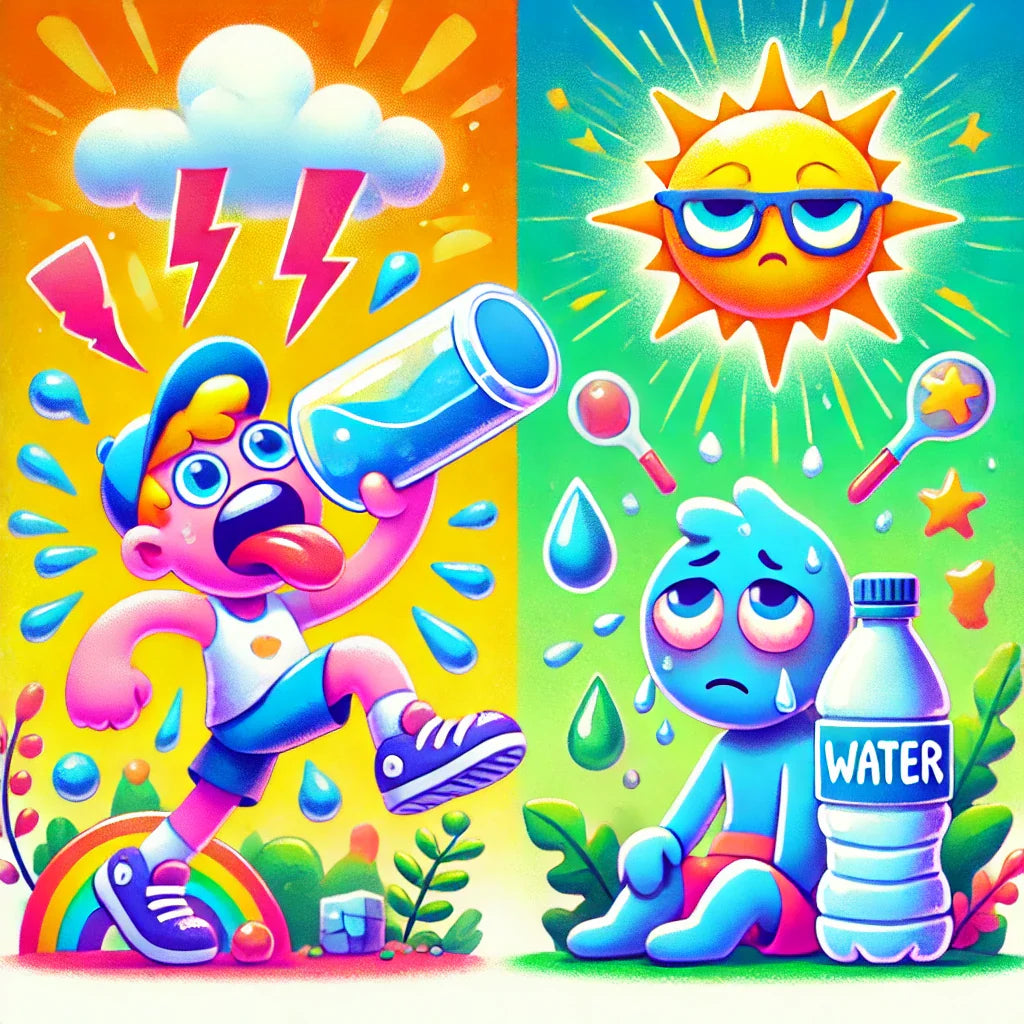The Role of Hydration in Energy Levels: Are You Drinking Enough?

Do you often feel tired, sluggish, or mentally drained? The reason might not be lack of sleep or poor nutrition—it could be dehydration. Many people underestimate the importance of staying hydrated for maintaining energy levels, brain function, and overall well-being.
Hydration is more than just drinking water when you’re thirsty. It plays a crucial role in keeping your body and mind functioning optimally. In this blog, we’ll explore why hydration matters, how it affects energy levels, and practical ways to stay hydrated daily.
What is Hydration?
Hydration refers to the process of maintaining a proper balance of fluids in the body. Since about 60% of the human body is made up of water, staying hydrated is essential for:
-
Regulating body temperature
-
Transporting nutrients and oxygen to cells
-
Removing toxins
-
Supporting digestion and metabolism
-
Lubricating joints and muscles
When the body lacks enough fluids, dehydration can occur, leading to fatigue, headaches, poor concentration, and decreased energy levels.
How Hydration Affects Energy Levels
1. Dehydration Causes Fatigue
Even mild dehydration (a 1-2% loss of body fluids) can significantly reduce energy levels and mental alertness. When dehydrated, blood volume decreases, making it harder for oxygen and nutrients to reach muscles and the brain. This results in tiredness and sluggishness.
2. Water Supports Brain Function
Studies show that dehydration can impair cognitive function, memory, and focus. A study published in The American Journal of Clinical Nutrition found that dehydration negatively affects mood, energy levels, and mental performance. If you often feel foggy-headed, drinking a glass of water may help improve your focus and alertness.
3. Hydration Helps Transport Nutrients for Energy
Water is essential for breaking down food and delivering nutrients to the body. When hydrated, vitamins, minerals, and oxygen reach your cells efficiently, supporting steady energy production. A lack of water can slow down metabolism, leading to fatigue.
4. Hydration Enhances Physical Performance
Proper hydration is critical for muscle function and endurance. When you lose fluids through sweat, your body struggles to perform at its best. Dehydration can cause:
-
Muscle cramps
-
Dizziness
-
Reduced strength and stamina
Drinking enough water before, during, and after exercise can prevent these issues and keep your energy levels high.
Benefits of Staying Hydrated
Drinking enough water daily offers numerous health benefits, including:
-
Improved Digestion & Metabolism – Helps break down food and prevents constipation.
-
Better Mood & Stress Reduction – Dehydration raises cortisol (the stress hormone), increasing anxiety and irritability.
-
Heart Health Support – Regulates blood pressure and reduces cardiovascular strain.
-
Toxin Removal – Flushes out waste and supports kidney function.
-
Healthy Skin – Keeps skin hydrated, reducing dryness and wrinkles.
How Much Water Should You Drink?
The recommended daily water intake depends on factors like age, activity level, and climate. However, general guidelines suggest:
-
Men: 3.7 liters (125 ounces) per day
-
Women: 2.7 liters (91 ounces) per day
If you exercise, live in a hot climate, or have a medical condition, you may need more water.
Tips to Stay Hydrated
-
Start Your Day with Water – Drinking a glass of water in the morning jumpstarts your metabolism.
-
Carry a Water Bottle – Having water with you makes it easier to drink throughout the day.
-
Eat Hydrating Foods – Include fruits and vegetables like watermelon, cucumbers, and oranges.
-
Set Reminders – Use phone alerts or apps to remind you to drink water.
-
Replace Sugary Drinks with Water – Swap soda and energy drinks for herbal teas or infused water.
-
Drink Before Feeling Thirsty – Thirst signals dehydration; stay ahead by drinking regularly.
Final Thoughts
Staying hydrated is one of the simplest and most effective ways to maintain high energy levels, improve focus, and support overall health. By making hydration a daily habit, you can prevent fatigue, enhance brain function, and boost physical performance.
Next time you feel drained, check your water intake—sometimes, the easiest fix is just a glass of water away. Stay hydrated, stay energized, and make hydration a priority every day!





